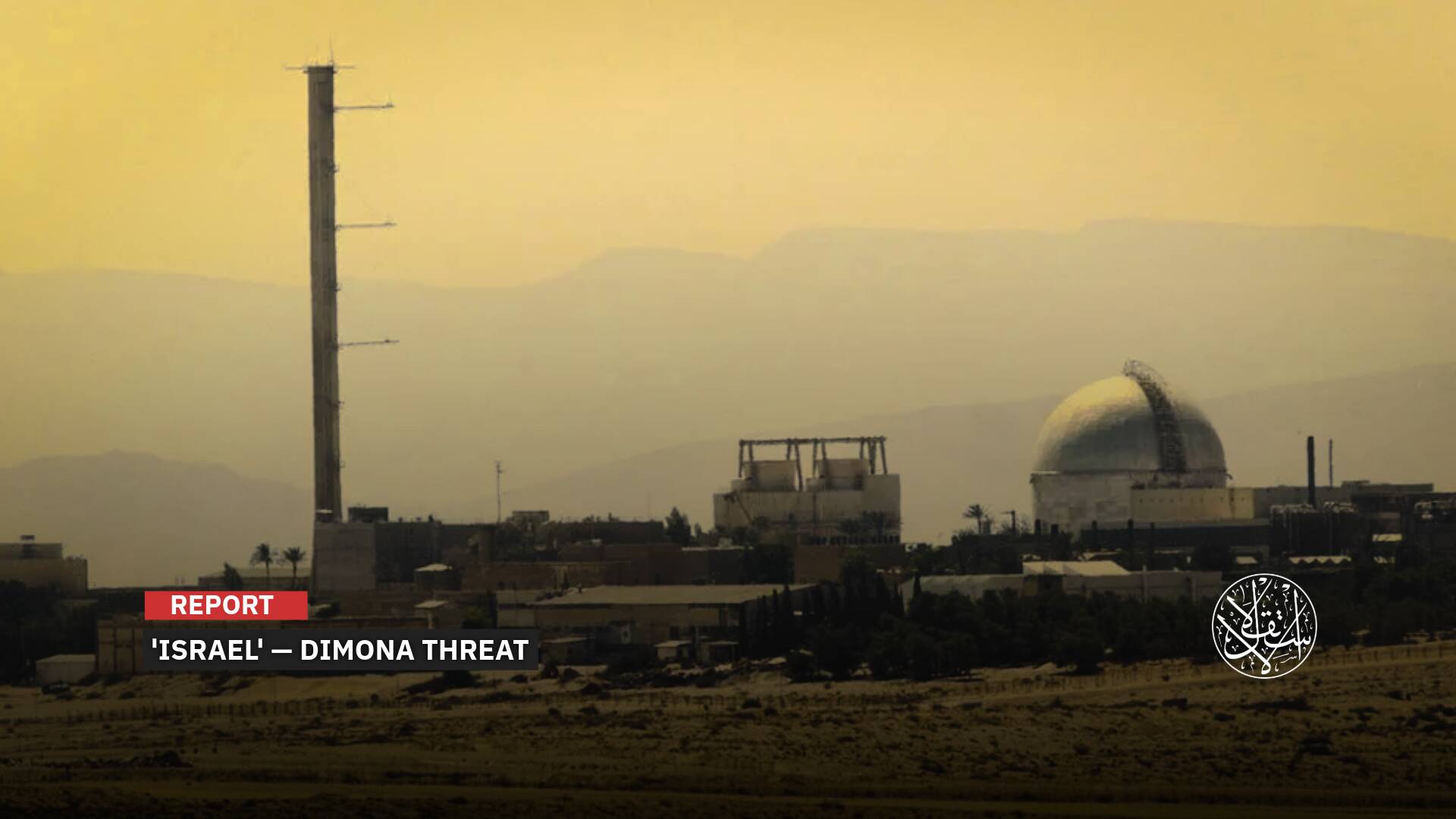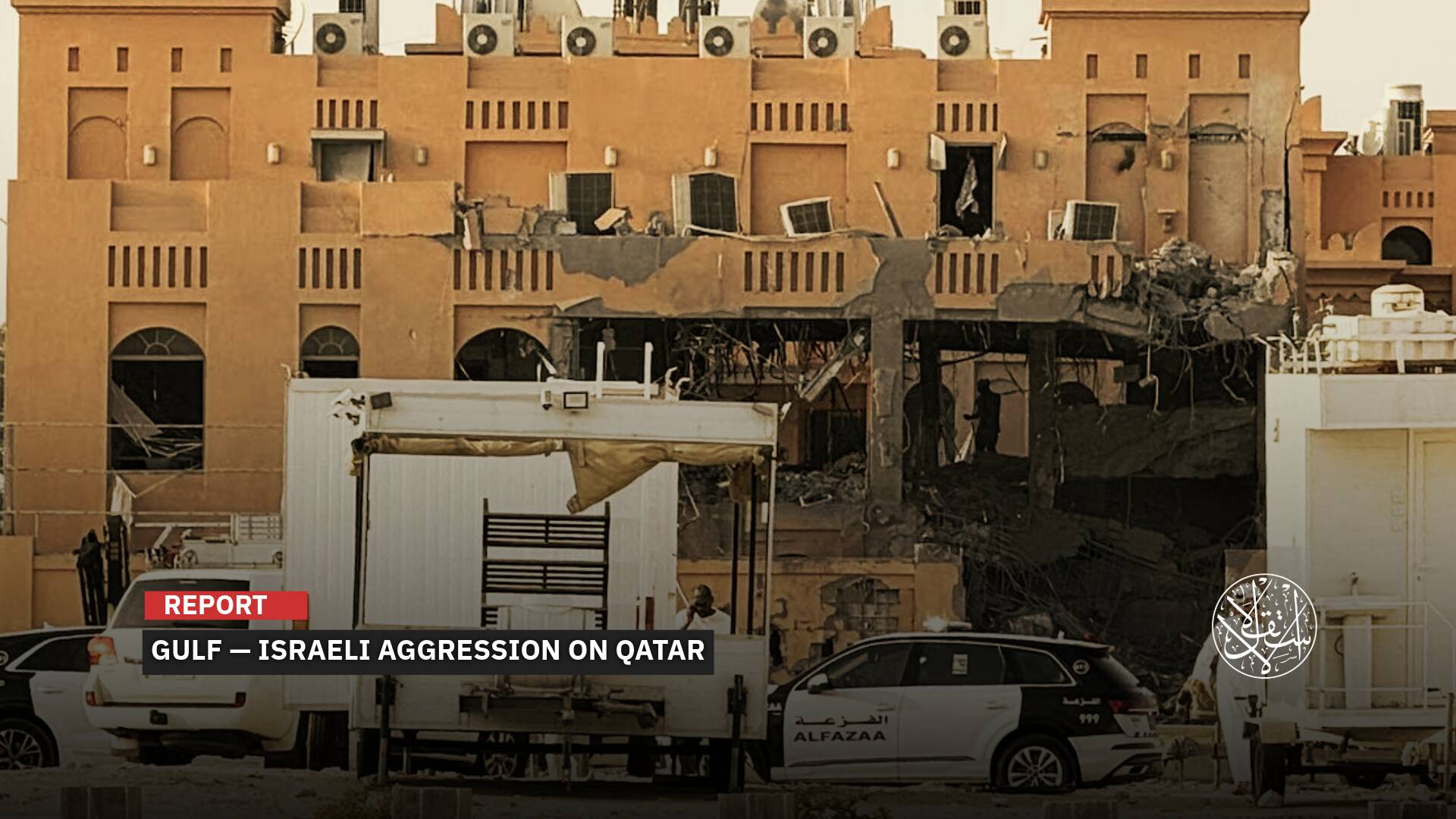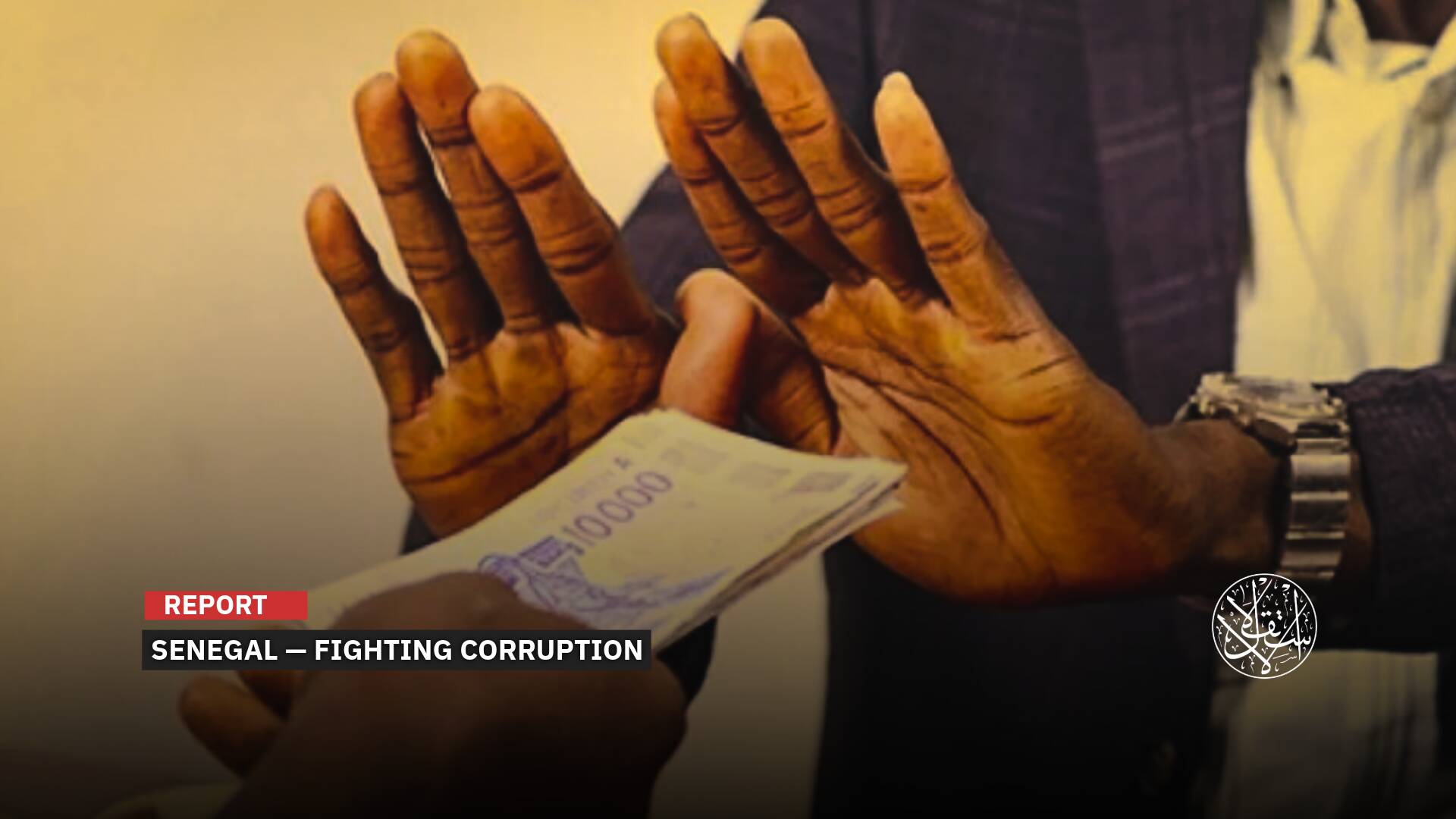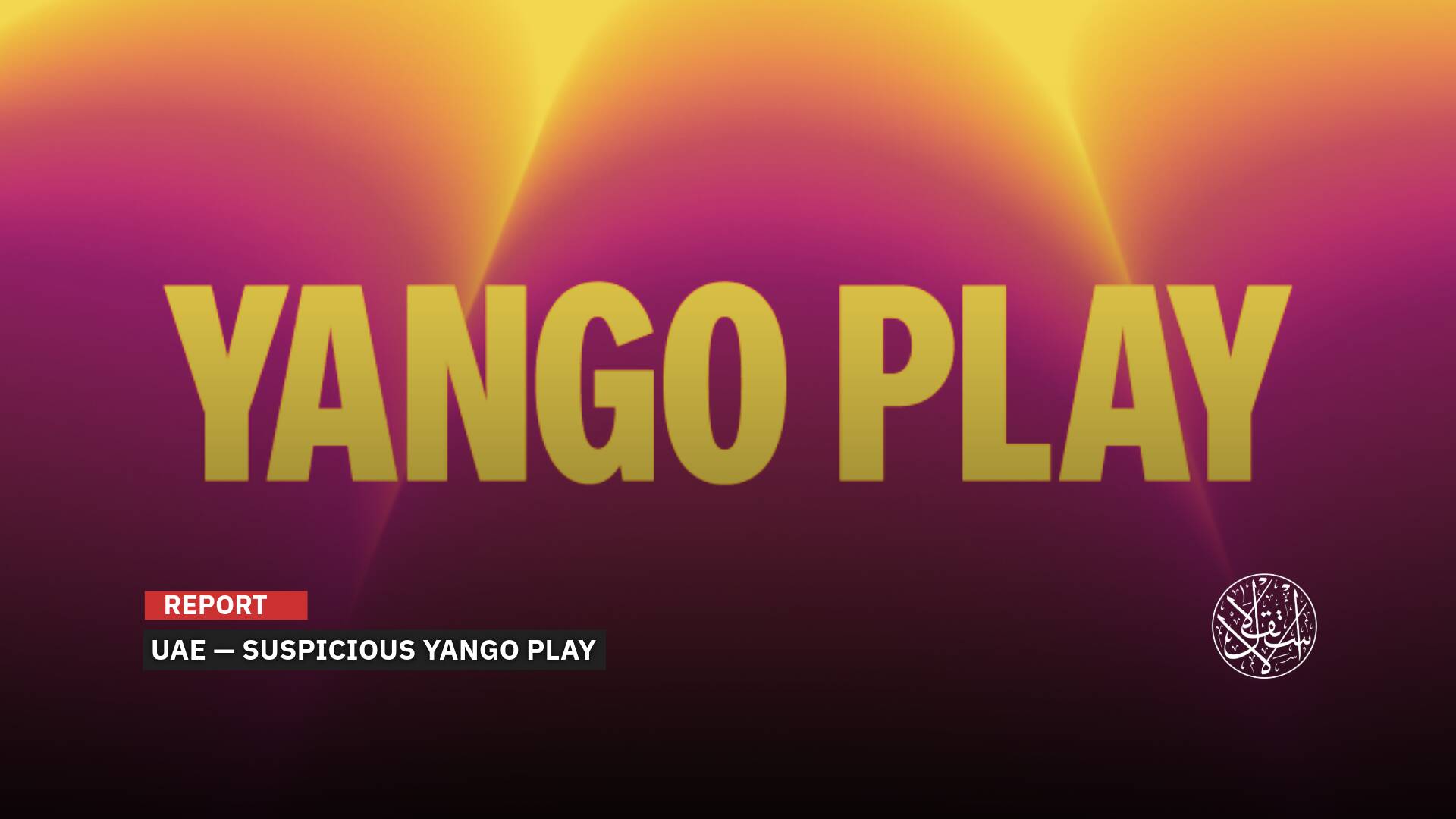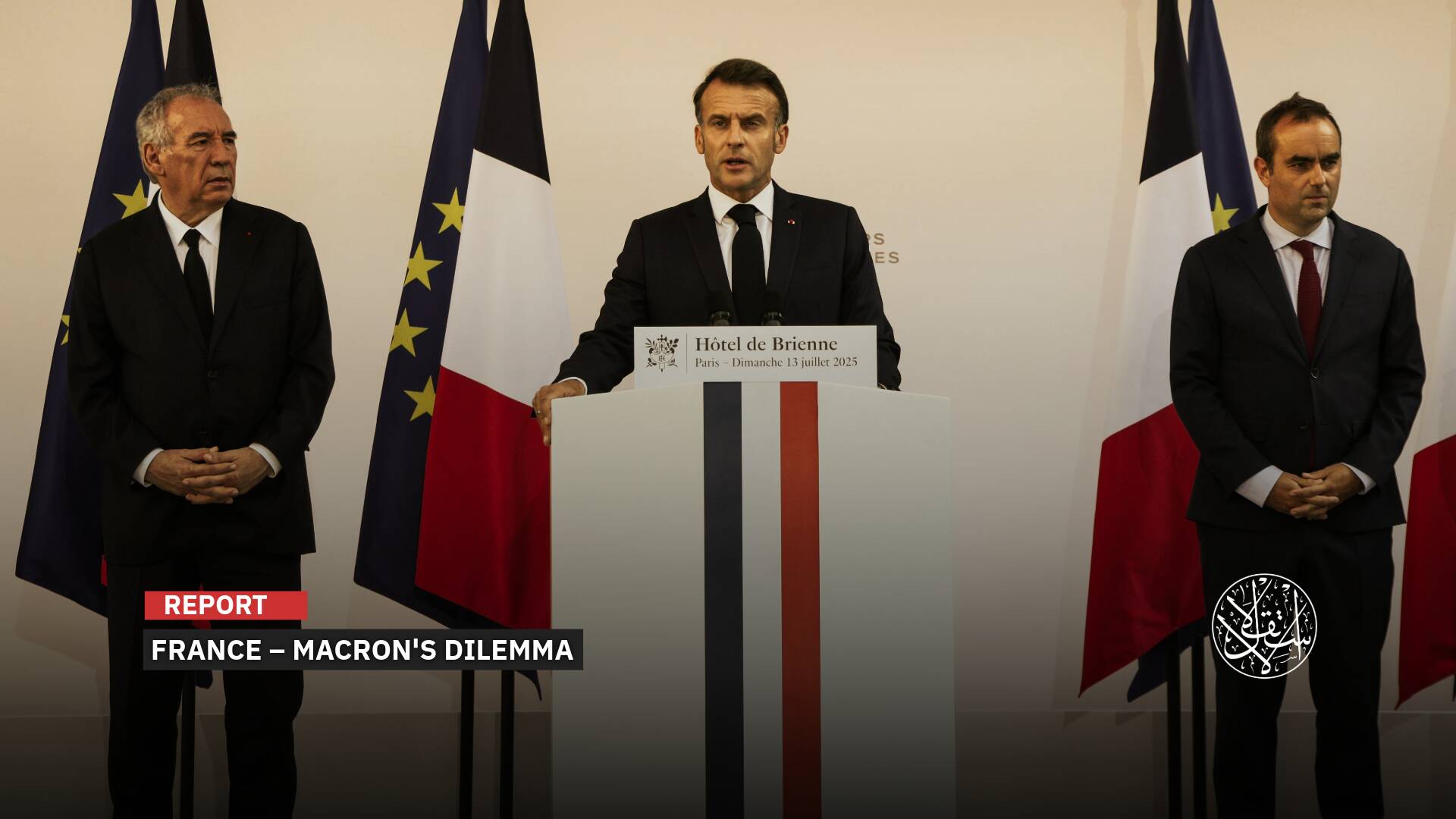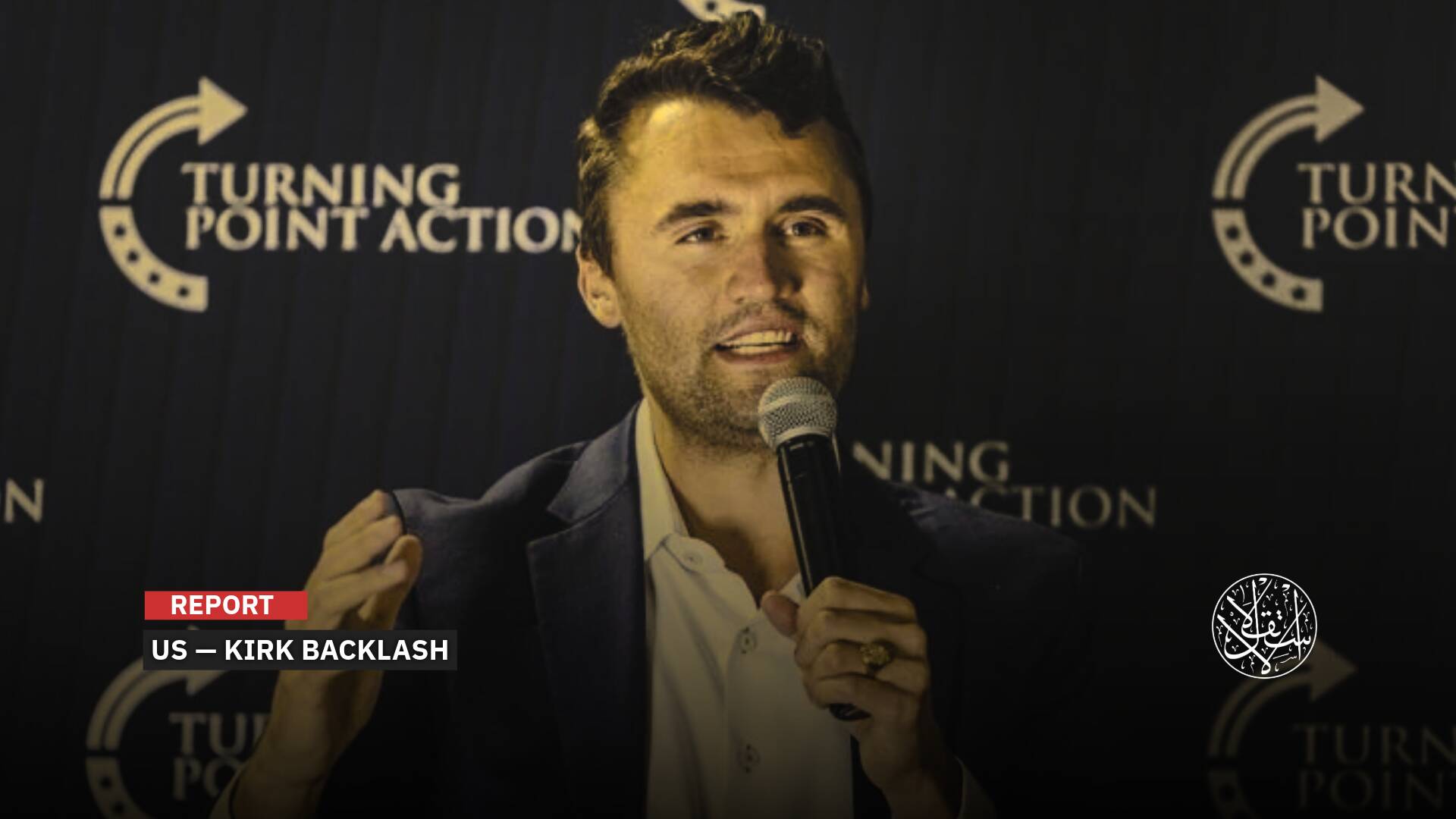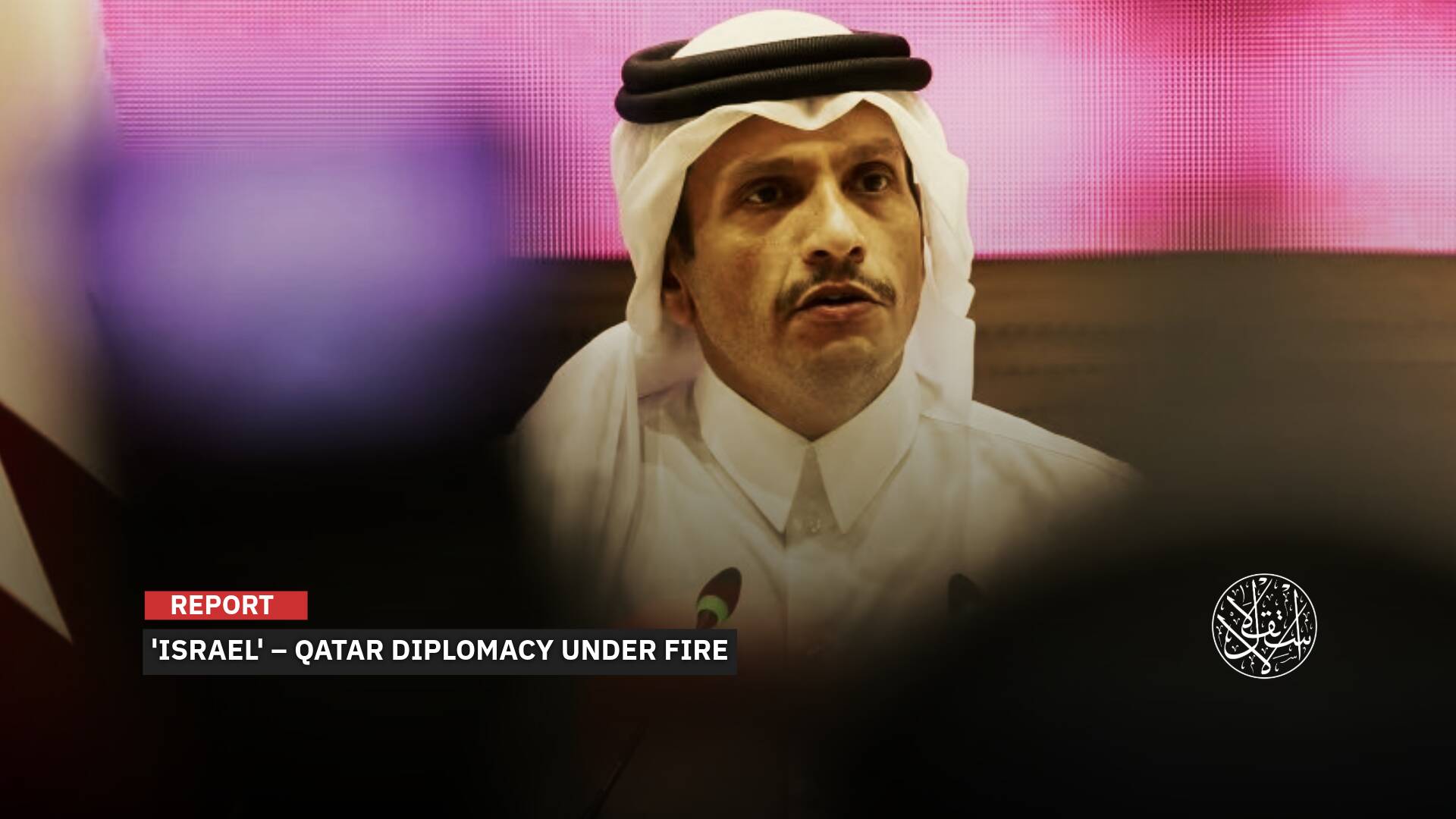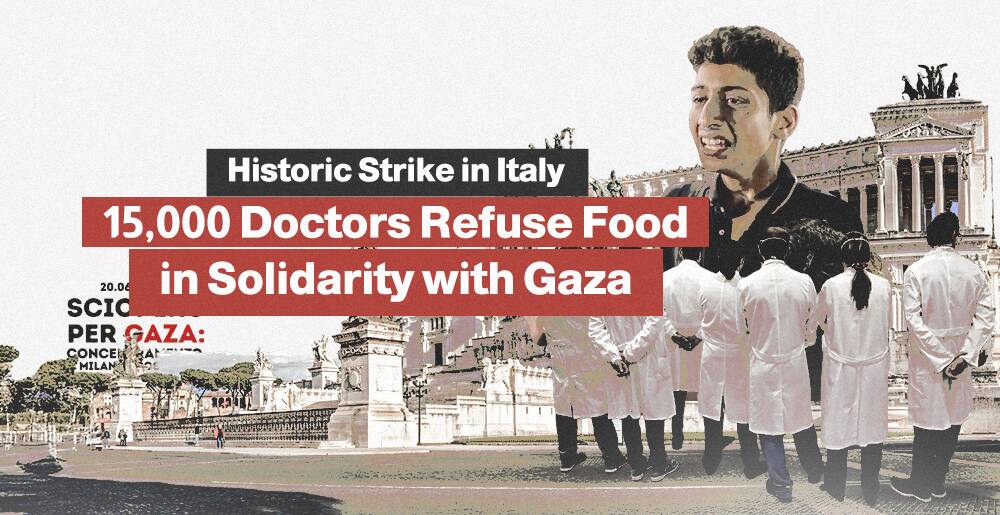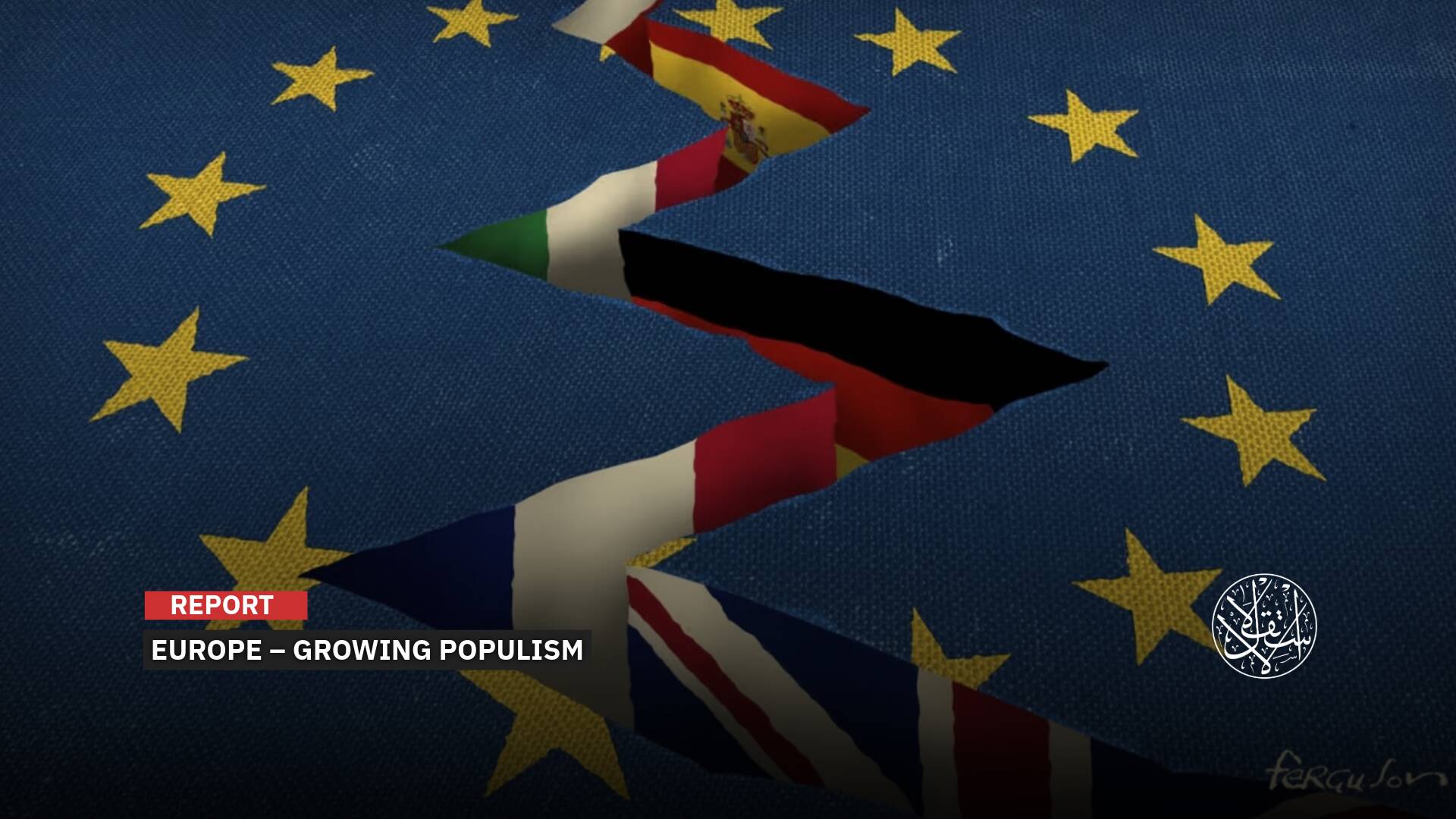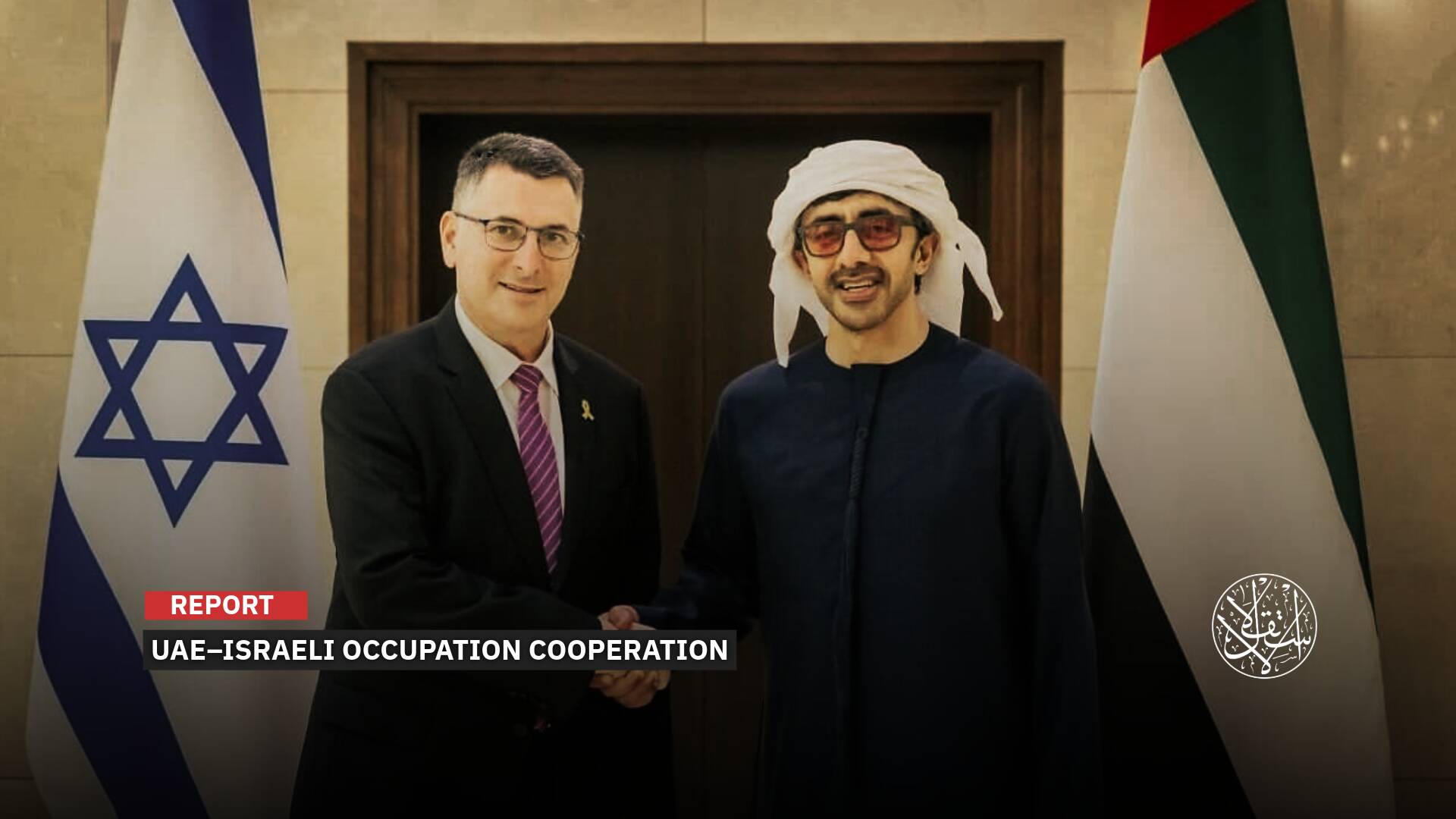How ‘Israel’ Became a Pariah on Football Pitches, Art Stages, and University Campuses
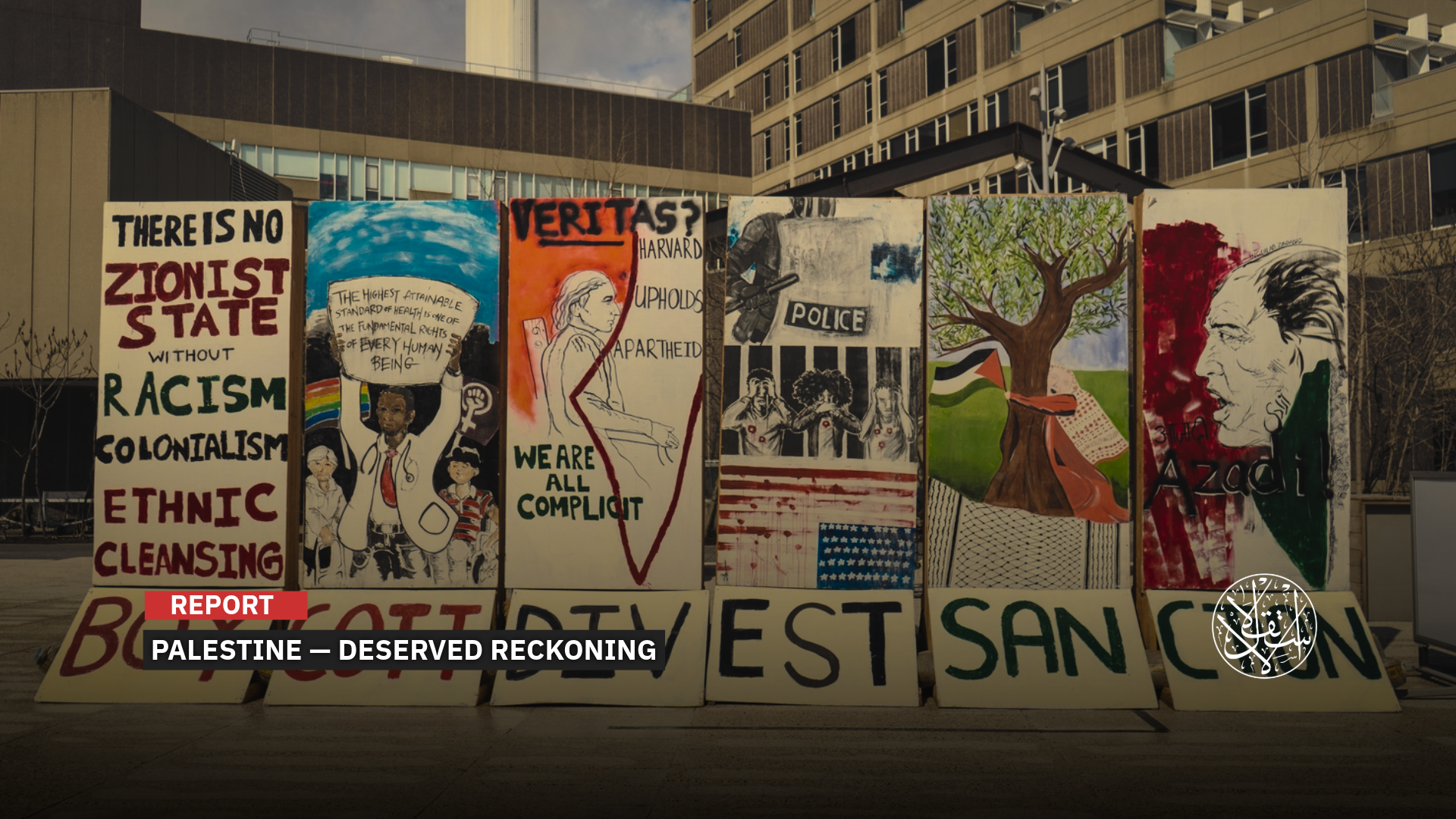
Global solidarity with Palestine is reaching an unprecedented peak across every sector.
U.S. President Donald Trump has sparked widespread controversy within Israeli circles and among “pro-Israel” lobby groups in the United States after claiming a decline in “Israel’s” international standing and a weakening of the “pro-Israel” lobby’s influence within Congress and the American political process.
These remarks have come as a shock to many in Israeli circles, given that they were made by a figure long known as “Israel’s greatest supporter,” whose name is linked to the relocation of the U.S. embassy to Jerusalem, the recognition of the city as the capital of “Israel,” and staunch backing of its wars in Gaza, Iran, and Yemen.
Unprecedented Collapse
“Israel once had the strongest lobby in Congress 15 years ago,” Trump said.
In an interview with the U.S. website The Daily Caller, published on September 2, 2025, he added that “Israel” was previously “the strongest lobby” he had ever seen, noting that it “completely controlled Congress, but it has lost that now.”
Meanwhile, the New York Times has reported and conducted polls showing a sharp decline in popular support for “Israel” among young Americans, both within the Democratic and even the Republican parties, suggesting a future U.S. policy very different from the past.
For Israelis, this shift is viewed as an existential threat, since the United States remains the fundamental pillar of political and military support for “Israel.”
Many believe “Israel’s” survival is directly tied to the continuation of that support.
This change in U.S. stance coincides with the approaching third year of the ongoing war of annihilation on Gaza, where the human toll mounts daily, with tens of thousands killed, and vast areas reduced to rubble.
Beyond Gaza’s borders, an unprecedented wave of solidarity with Palestinians has grown, not limited to the U.S. but spreading from political capitals to universities, from sports arenas to arts festivals, while “Israel” faces increasing isolation and erosion of its international image.
This global outrage has moved beyond slogans to political, legal, economic, and cultural actions that have placed the occupation under mounting international siege.
At the same time, “Israel” is grappling with a series of European recognitions of the State of Palestine, regarded as a historic shift.
Spain, Ireland, Norway, Slovenia, and Armenia have officially recognized Palestine, while France and the UK have pledged to do so in September 2025, breaking a long-standing European silence marked by hesitation.
In Latin America, some countries preceded Europe’s step with even stronger stances.
Bolivia cut diplomatic ties with “Israel,” while Chile and Colombia recalled their ambassadors in protest against ongoing massacres.
These positions have cemented “Israel’s” image as a pariah state in regions where it once wielded significant influence.
Alongside politics, the war on Gaza has opened an unprecedented international legal front, with courts worldwide issuing arrest warrants against Israeli soldiers and political and military figures.
The International Criminal Court has already issued warrants against Prime Minister Benjamin Netanyahu and former Defense Minister Yoav Gallant, charging them with war crimes and crimes against humanity. Since then, they have been banned from entering most countries.

Global Uproar
The wave of solidarity did not remain confined to governments and courts, but spilled onto the streets and public squares.
Major global capitals, London, Paris, Madrid, Berlin, New York, and Washington, witnessed protests described as “massive,” marking one of the largest solidarity movements in history.
These demonstrations called for severing ties with “Israel,” halting economic dealings, banning arms sales, and imposing severe sanctions to stop what protesters described as a genocidal campaign.
Meanwhile, universities across the U.S. and Europe experienced the largest student protests in decades.
Students held open sit-ins at major institutions such as Columbia, Harvard, and Yale, setting up camps they called “Gaza Sit-Ins.”
Despite violent police interventions and hundreds of arrests, these protests continue to escalate worldwide.
In the same vein, Palestinian activist Mustafa Hattab, based in Europe, told Al-Estiklal that the solidarity Europe is showing today with the Palestinian cause “is unprecedented.”
“Even the most optimistic never imagined the Palestinian cause would gain this momentum in the West,” Hattab explained, noting that European public opinion, historically one of the “Israel’s” staunchest backers, has shifted decisively toward the Palestinian side.
Scenes of solidarity have become part of everyday life across Europe, visible in countless public spaces.
“As you walk down the streets, you see messages of support on shop windows, Europeans wearing Palestinian keffiyehs, children donning shirts bearing the name and image of Hind Rajab, and vehicles decorated with Palestinian flags and slogans calling for an end to the war,” he added.
Hattab emphasized that these signs of support are no longer limited to France or Britain, but have spread across most European countries, making solidarity with the Palestinian people a permanent and widespread feature of the European landscape.
He stressed that the movement has not been confined to public spaces, but has also extended to segments of the European Jewish community, some of whom have taken striking stands.
Some of these Jews were originally opposed to the idea of a Jewish state on Palestinian land, while others have changed their positions in response to the scenes of war and massacres, becoming outspoken critics of the war.
Hattab added that others have felt compelled to declare their solidarity out of social pressure and fear of ostracism, as Israeli propaganda, especially the claim of “Israel’s” “right to self-defense,” has been exposed and no longer convinces anyone amid the daily atrocities committed against Palestinians.
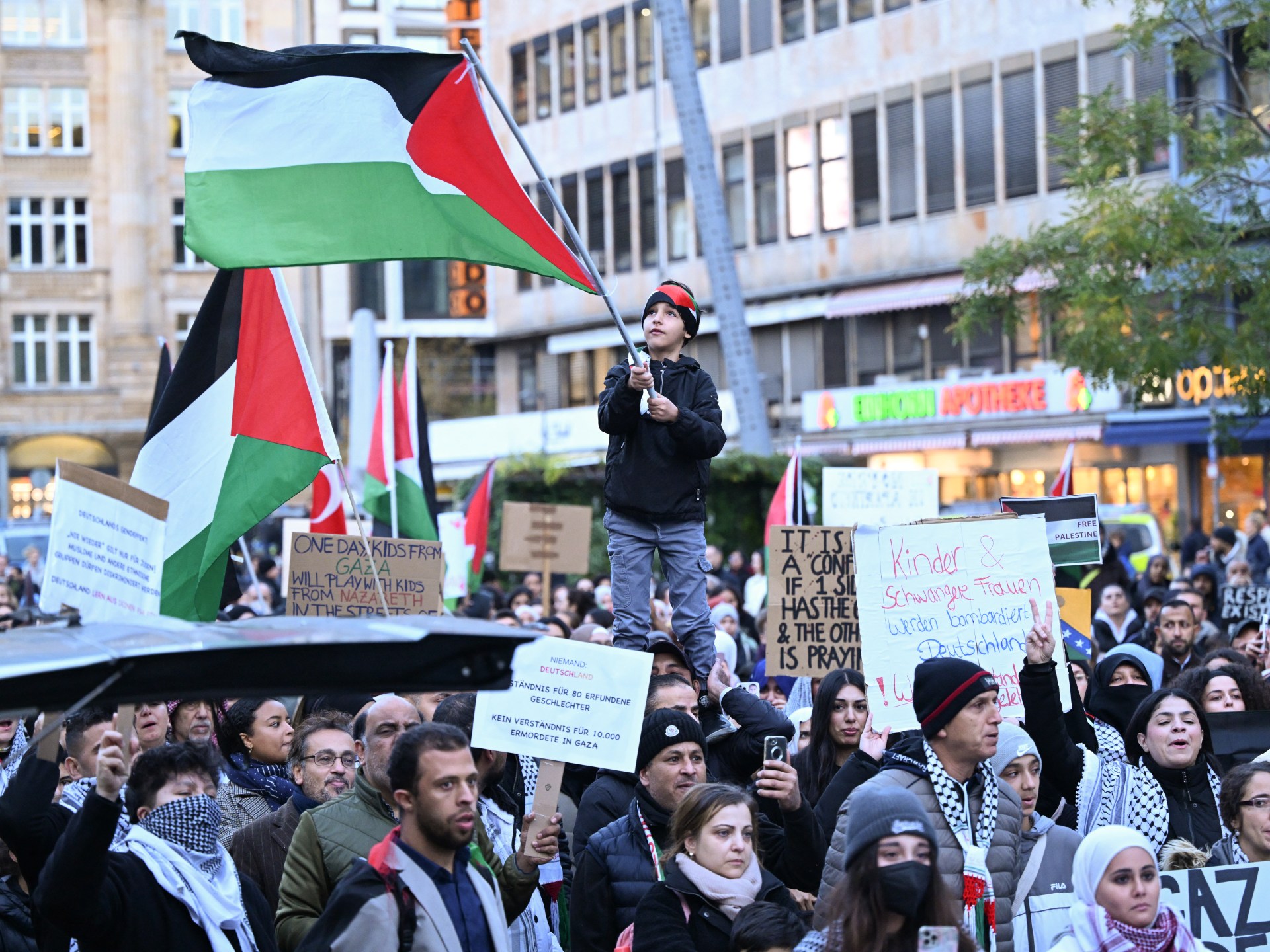
Public Opinion
European activist Mustafa Hattab pointed out that “the scene of solidarity in the West starkly differs from the reality in the Arab world, where solidarity movements have long since faded, nearly absent, while in Europe, the West, and Latin America there is a kind of ongoing solidarity uprising, especially in recent weeks and months.”
He noted that the intensity of this solidarity has risen unprecedentedly with the worsening humanitarian disaster and famine in Gaza, extending across all arenas: from the arts to football, from universities to streets and public squares.
Hattab told Al-Estiklal that this solidarity “is no longer just a fleeting popular movement, but has become a pressing public opinion, deeply influencing European decision-makers.”
“It has forced governments to take steps that were hard to imagine in the past; such as recognizing the State of Palestine, demanding an end to the war, imposing broad suspensions of arms shipments to Israel, and even condemning it as a state committing war crimes,” he continued.
Hattab stressed that this large popular movement will not go unnoticed by European governments, as it has become a strong factor in their political calculations and official stances, now a significant issue in electoral processes.
He affirmed that this shift in the European position is not temporary or superficial, but has spread to affect European beliefs and convictions regarding the Palestinian issue.
He explained that a series of cultural and educational events have helped clarify many truths, such as the events of the Nakba, the Balfour Declaration, the expulsion of Palestinians, the Naksa, and other milestone phases that shaped the Palestinian cause, in addition to explaining the refugee issue, the Palestinians’ right to their land, and how “Israel’s” forceful control over occupied territories has shaped the lived reality.
Hattab emphasized that these recent wars and massacres, despite their severity, have opened the eyes of Europeans to the real roots of the Palestinian cause, and have undermined the Israeli narrative based on a “supposed historical right” spanning thousands of years, which no longer convinces anyone after Europeans have seen with their own eyes the ethnic cleansing, displacement, massacres, and falsification of facts.
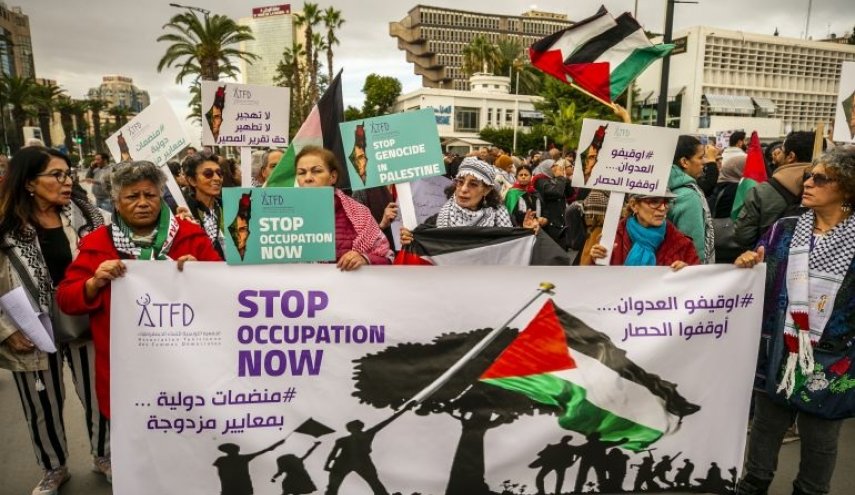
A Deserved Reckoning
The solidarity wave with Gaza and the Palestinian cause has carried devastating economic consequences for supporters of the occupation, especially corporate ones, as the war has fuelled widespread boycott campaigns against companies accused of backing “Israel.”
Major chains like McDonald’s and Starbucks have suffered significant losses globally, after many of their branches became focal points for boycott actions, leading to sharp declines in their market value due to falling sales, and numerous outlets in the Middle East have closed.
Sports too have not remained silent, with Palestinian flags, protests calling for an end to genocide, and calls for cutting ties with “Israel” omnipresent in stadiums in recent months.
Many sports stars around the world have expressed solidarity with Gaza, both on and off the field.
Pressure has also grown to suspend “Israel’s” participation in international competitions, amid rising public demand to ostracize the occupation in the arena of global sport as well.
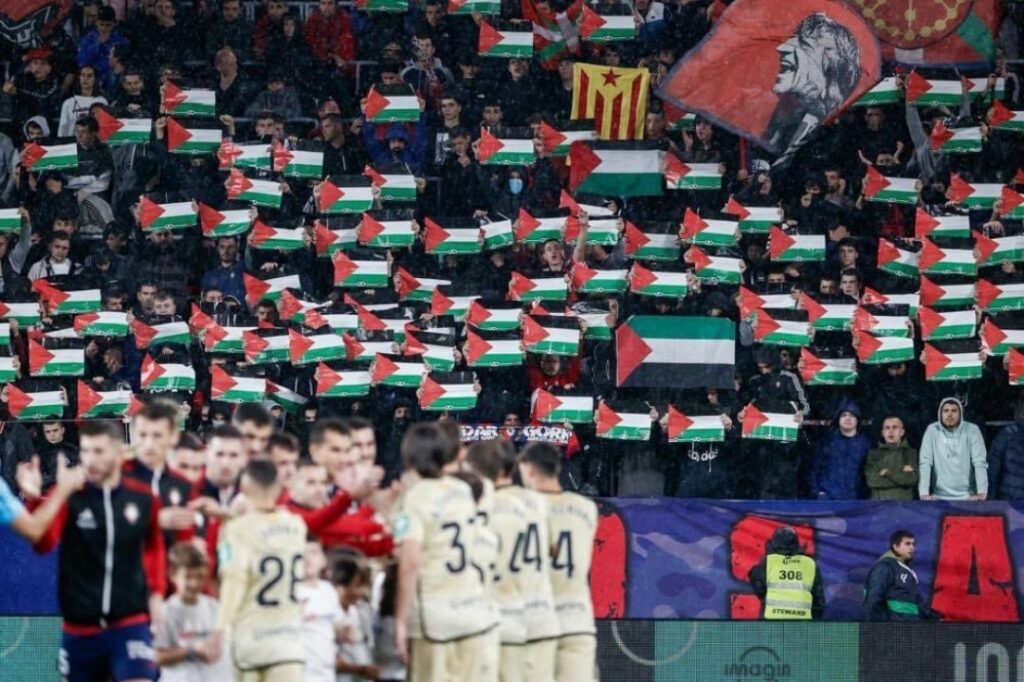
In the arts, solidarity with Gaza has taken on an unprecedented form, with global artists launching the Artists4Ceasefire campaign in the United States, and appearing at the Oscars and Grammys wearing a red pin symbolizing a ceasefire.
The film “The Voice of Hind Rajab” won the Silver Lion on September 6, 2025, at the 82nd Venice International Film Festival.
The film tells the story of the child Hind Rajab, who was brutally killed by the occupation along with her family.
In Britain, thousands of artists signed a statement via Artists for Palestine UK, calling for an end to the war and for lifting the blockade.
Major music festivals like Glastonbury became platforms of solidarity, with performers reading messages of support for Palestine in front of tens of thousands of fans.
Music has played a central role in spreading the message. American artist Macklemore released the song “Hind’s Hall” in protest of student demonstrations.
The song, released on May 6, 2024, has become a symbol of pro‑Palestinian student protests at U.S. universities, calling for a ceasefire in the war on Gaza.
Its title is inspired by the renaming of Hamilton Hall at Columbia University to “Hind Hall,” in honor of the child Hind Rajab.
Sources
- Growing artistic solidarity with Palestine in the West contrasts with the silence of Arab counterparts [Arabic]
- European recognitions of Palestine deemed ‘symbolic gesture’ that unsettles Israel [Arabic]
- Gaza takes center stage on stadium terraces and sports platforms [Arabic]
- “The Voice of Hind Rajab” wins Silver Lion at Venice Film Festival [Arabic]


